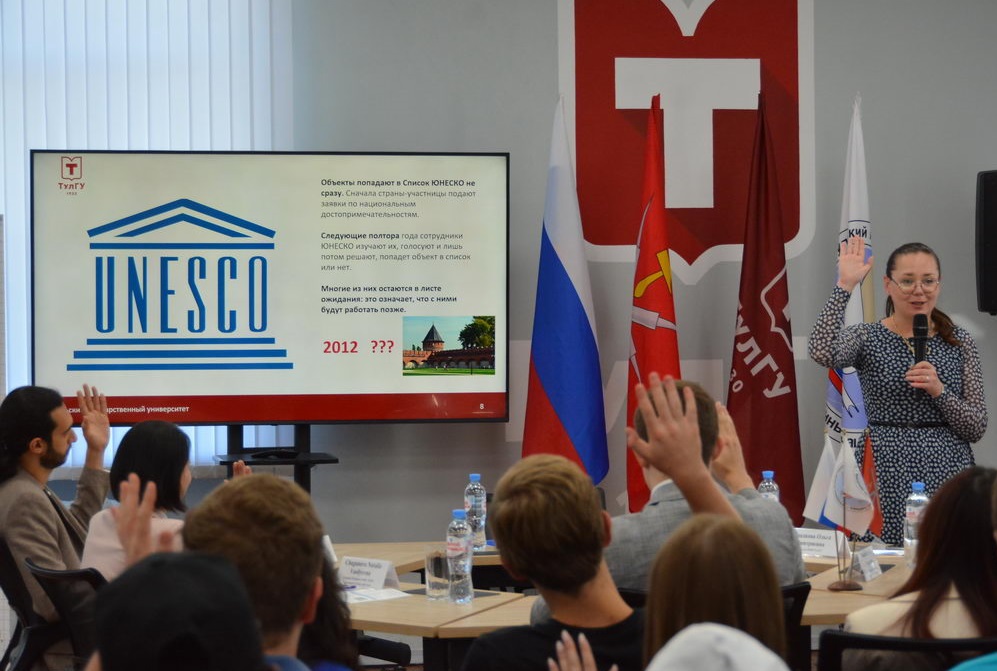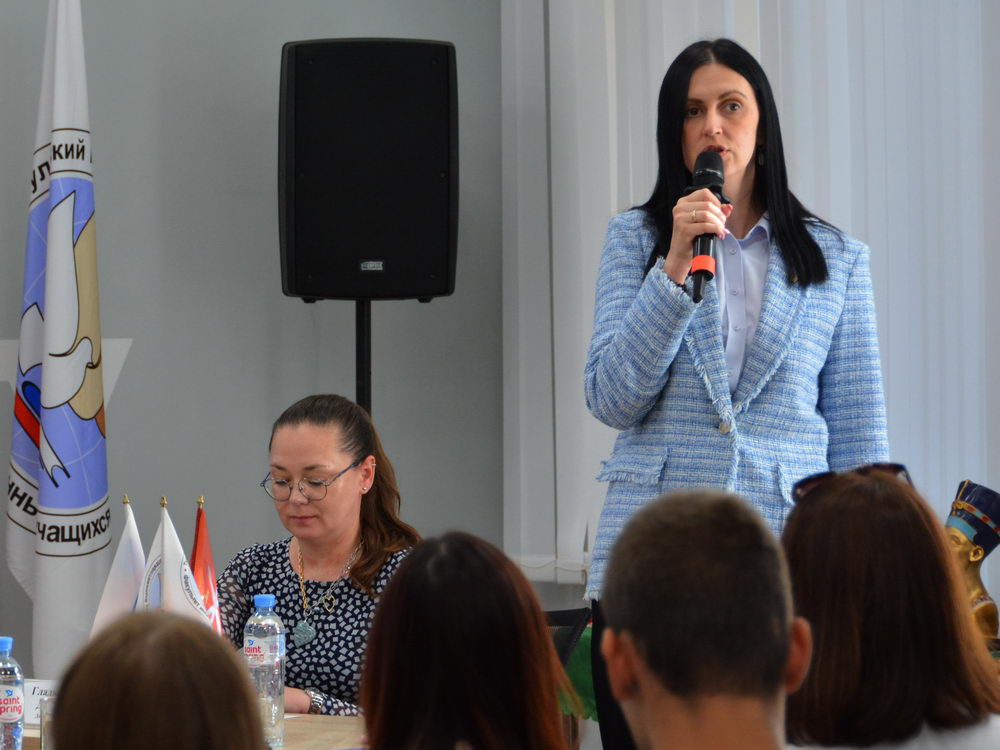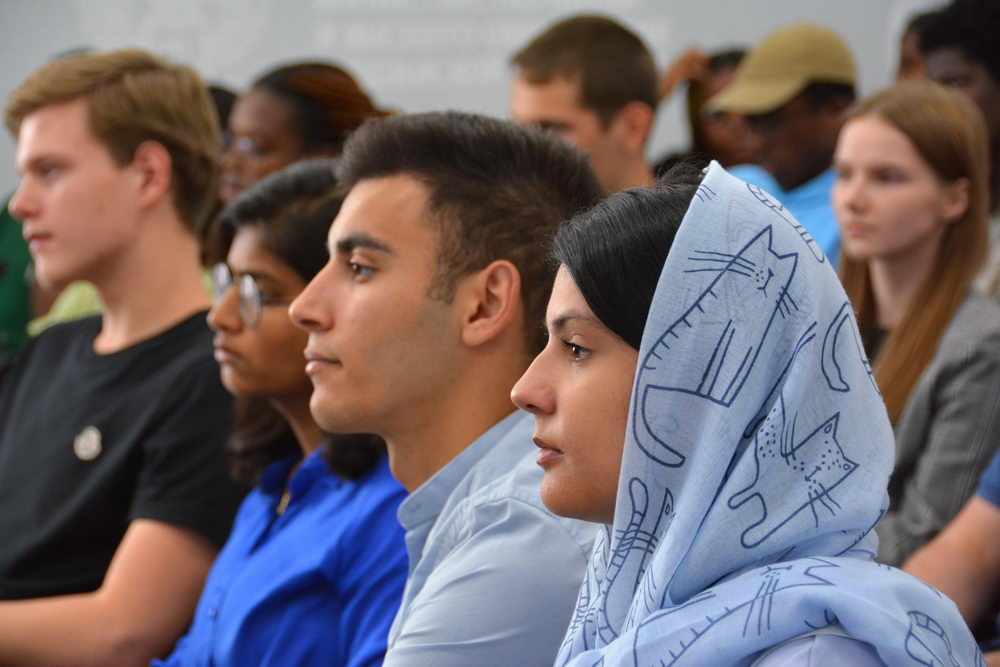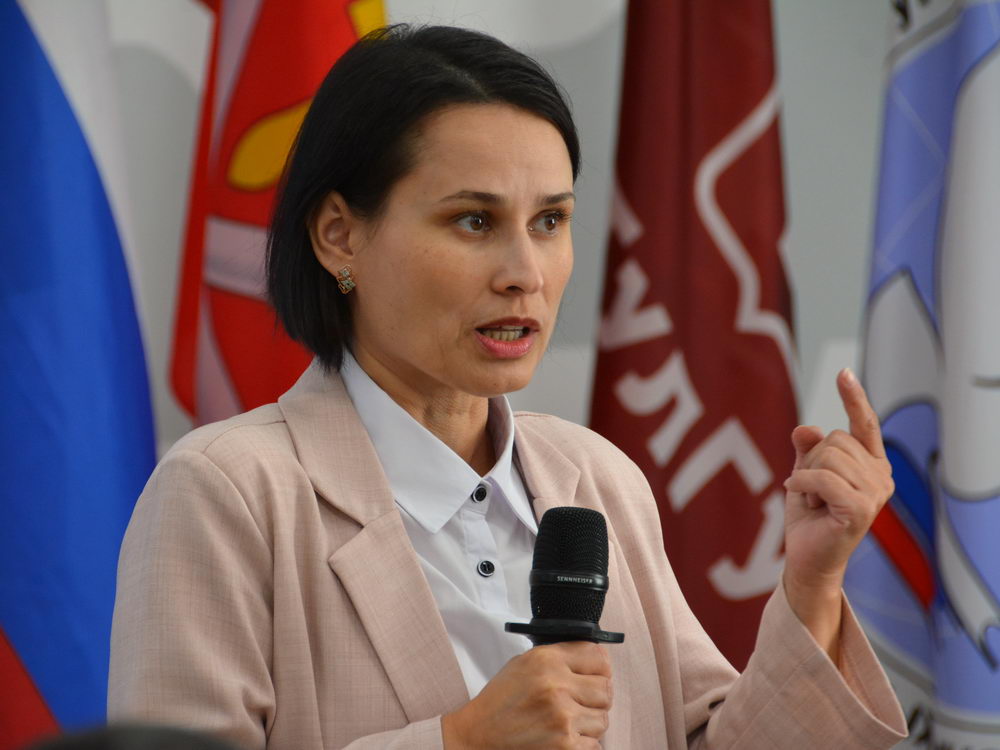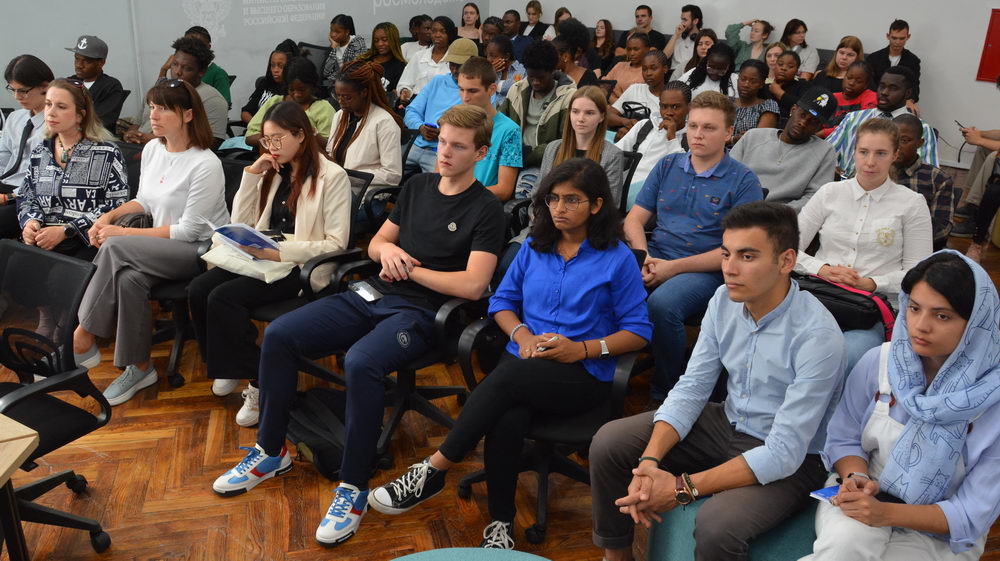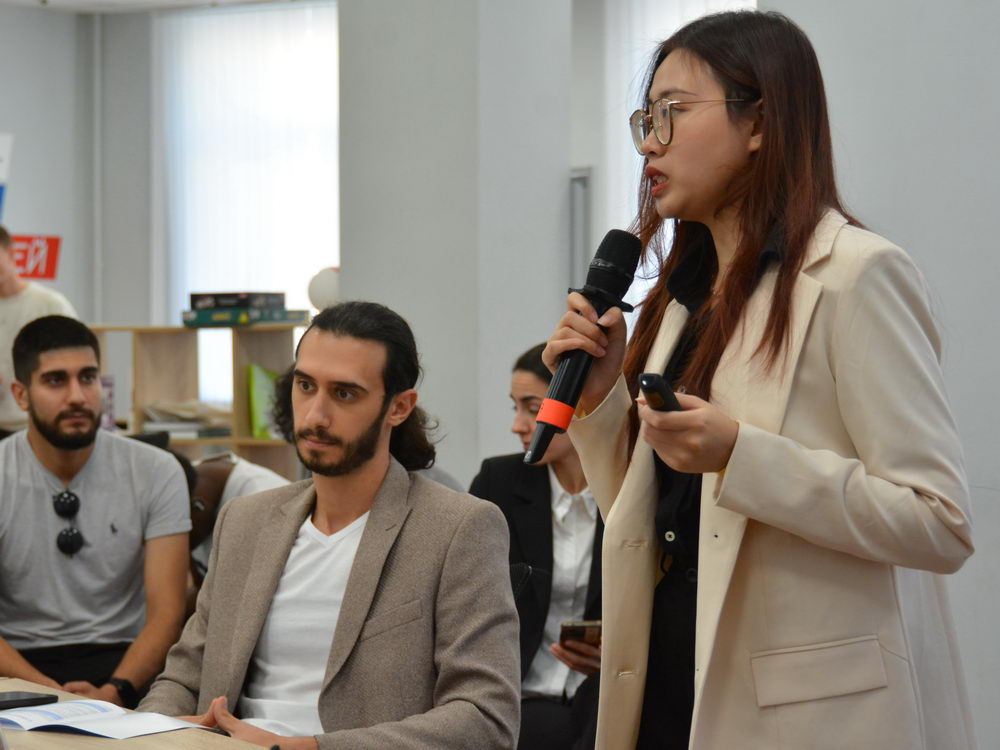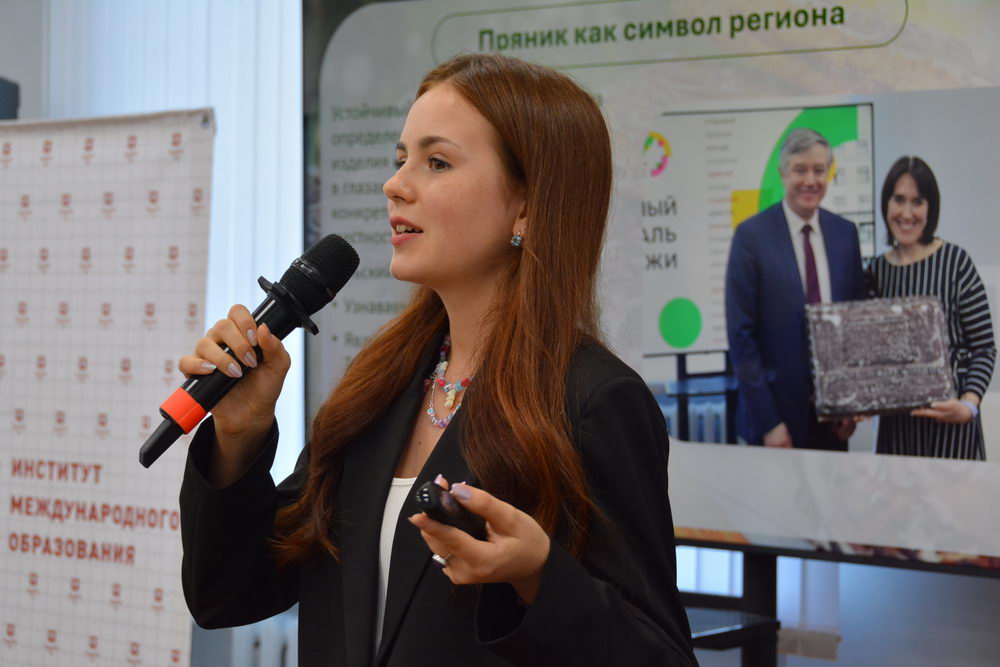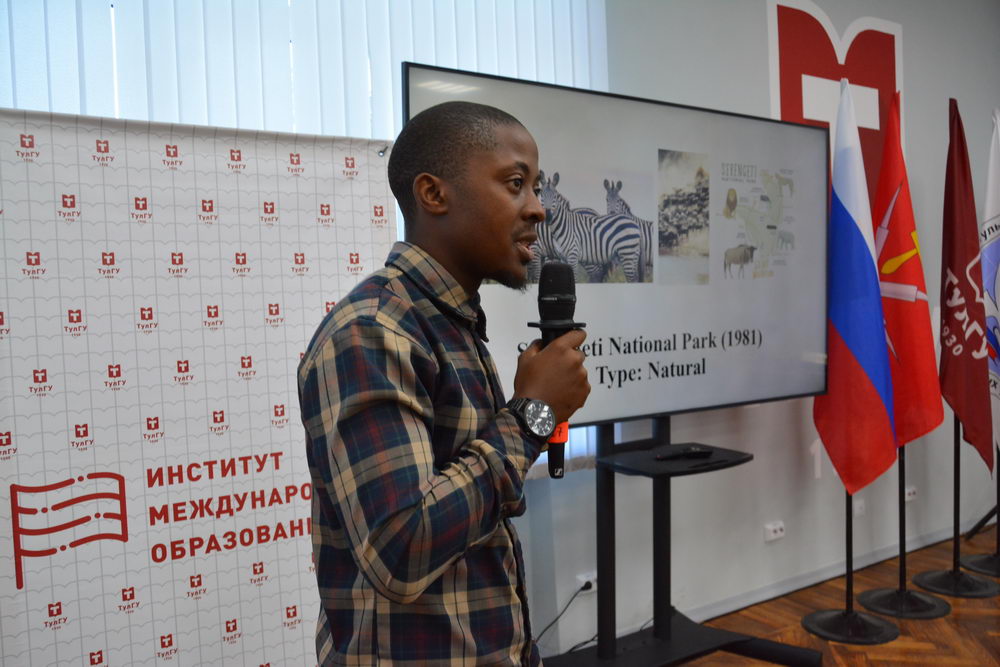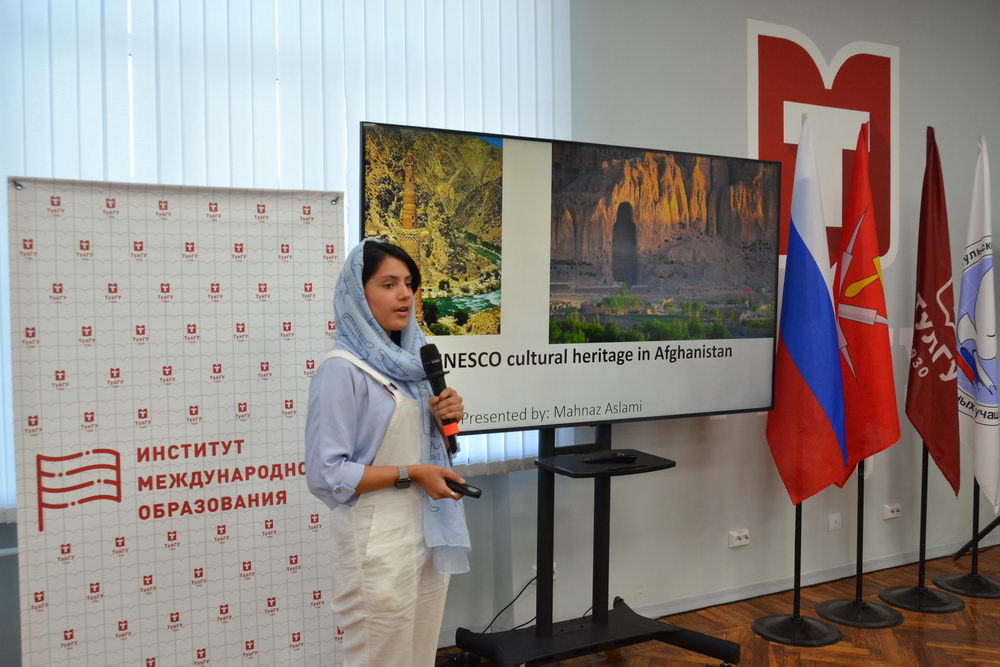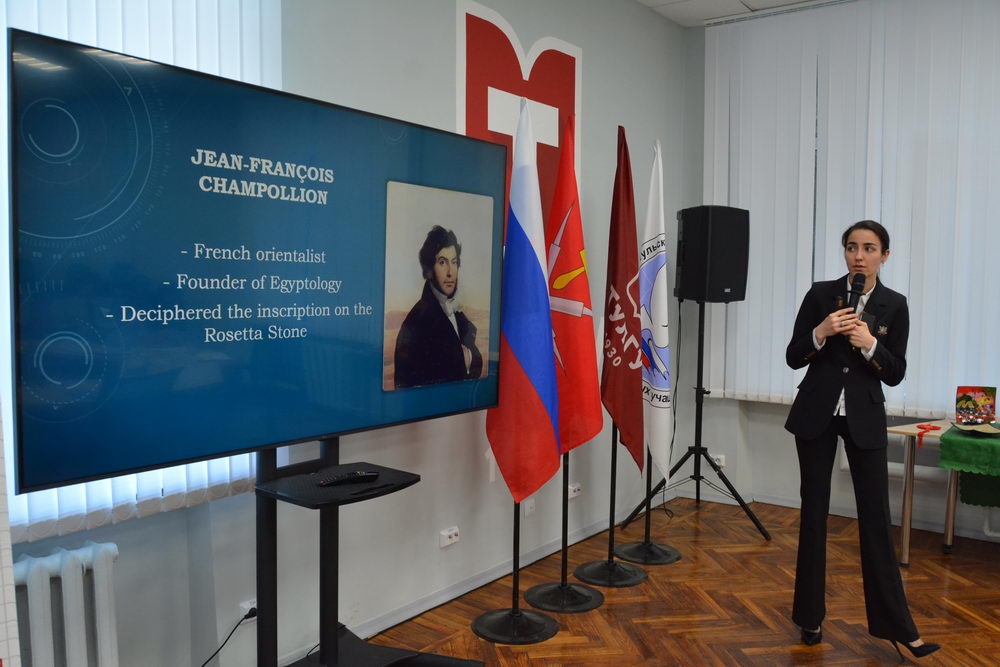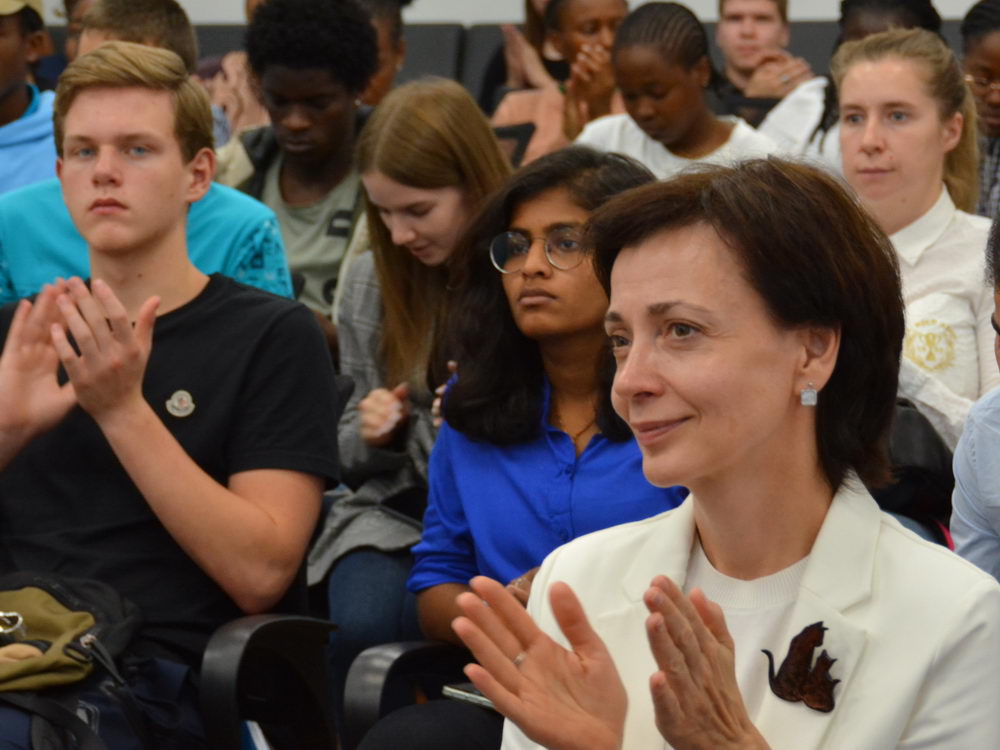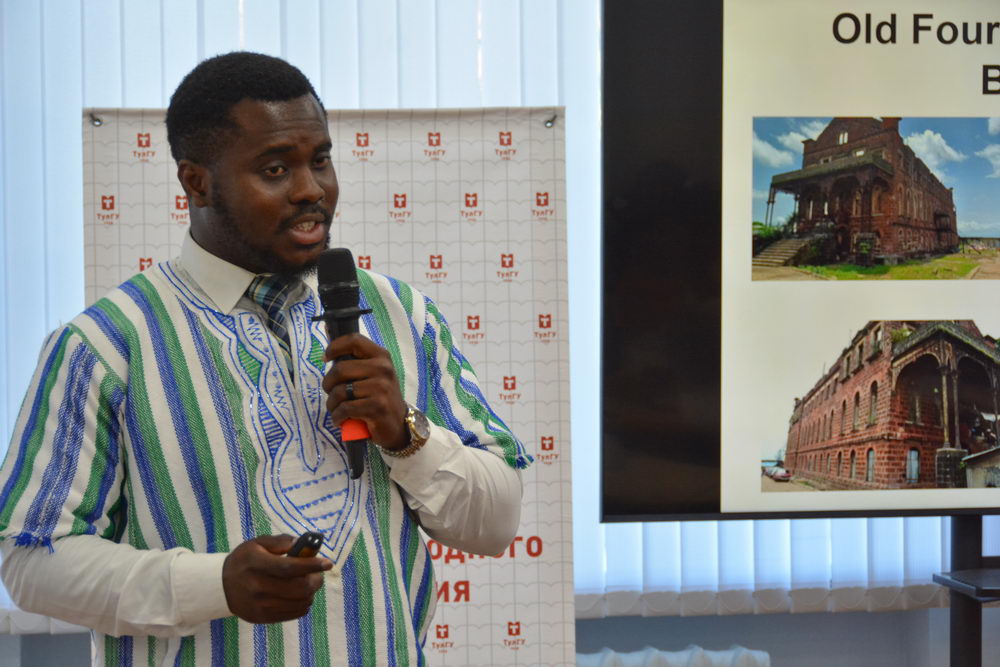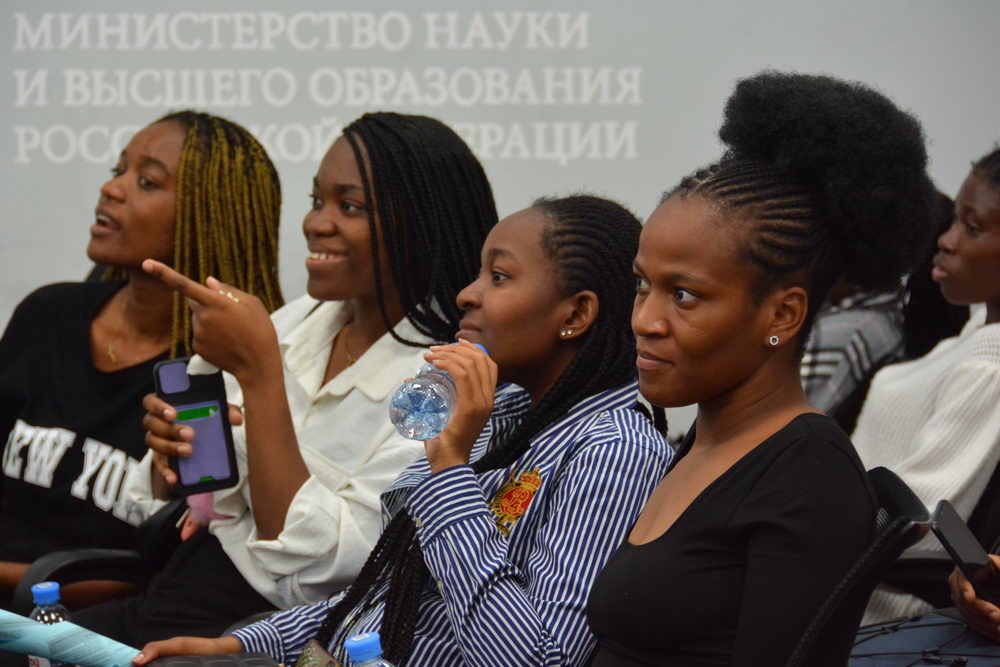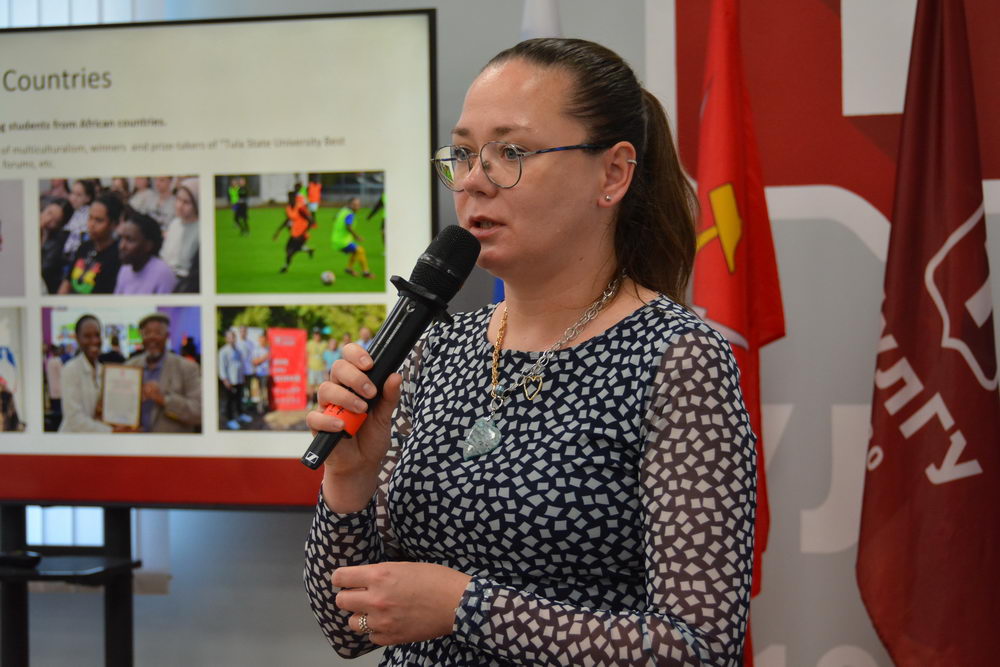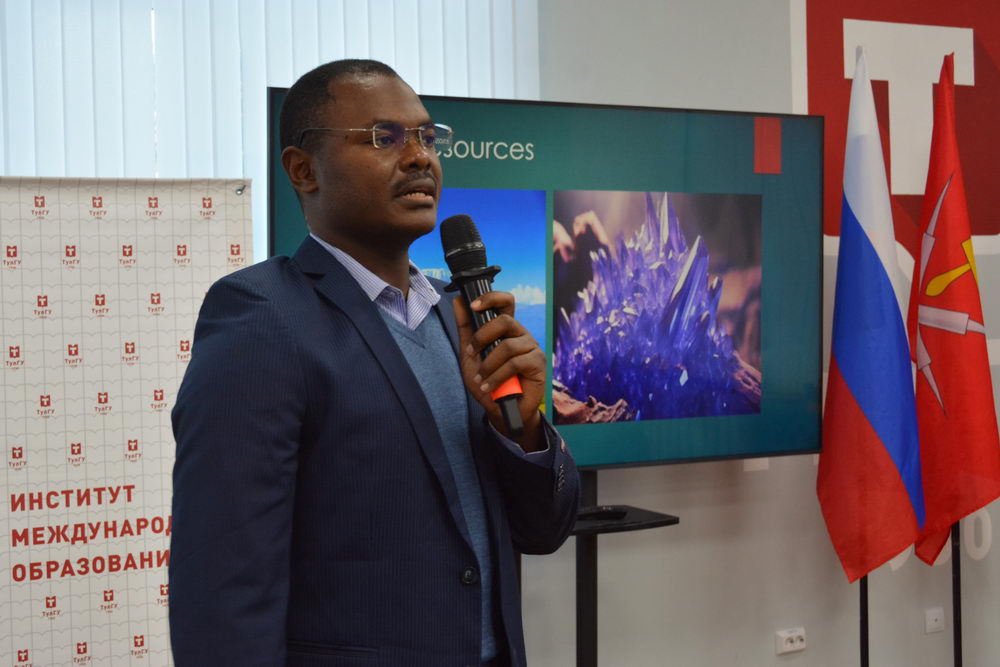- 20.09.2024
A reunion of friends under the sign of UNESCO
On 20 September, Tula State University hosted the IV International Scientific and Practical Conference dedicated to the 70-th anniversary of the history of cooperation between Russia and UNESCO.
This event was organised by the Institute of International Education.
Olesya Yevgenyevna Labadze, the Vice-Rector for International Affairs and Project Management opened the conference with a welcoming speech.
Today, she said, this is the fourth time that the Institute of International Education is organising a conference on the preservation of UNESCO World Heritage.
Cultural Heritage is of great importance because it is a kind of repository of accumulated human experience. Without cultural heritage there is no humanity.
On 22 April 2024, an exhibition dedicated to the 70th anniversary of the USSR's accession to UNESCO was opened in the building of the Russian Ministry of Foreign Affairs. Sergey Viktorovich Lavrov, Minister of Foreign Affairs of the Russian Federation, spoke at the event. He said that UNESCO had found a proactive and responsible member in Russia. For seven decades, our country has demonstrated its commitment to the ideals and principles of this organisation.
Olesya Yevgenyevna emphasized that by studying the objects of cultural heritage of different nations and acquainting representatives of other countries with the objects of heritage of their homeland, a person makes a significant contribution to the preservation of the world cultural heritage.
Tula State University has a special multicultural environment where representatives of different countries can share their experience and learn something new. That is why this conference exists within the walls of our university, which allows not only to develop the humanitarian culture of students, but also to educate them to respect the history and traditions of their own and other nations.
Olga Dmitriyevna Gladkova, the Director of the Institute of International Education, added that the conference has a lot of friends, and even huge distances and circumstances didn`t prevent them from saying kind words to the participants of this event.
A diplomat, former Ambassador of the Republic of Benin to the Russian Federation, Director General of International Projects, expert in international relations, founder of the Association of International Students Aniset Gabriel Kochofa welcomed the students and teachers via videoconference.
He confessed the brightest feelings for Tula State University, which takes an active part in the work of the Association of Foreign Students and makes its noble contribution to the strengthening of friendship between students of different countries.
Mr Kochofa wished the children to be enterprising, energetic and purposeful, to learn how to interact in a team and to move forward. Such a life stance provides a good path to a great life.
Fatima Abrekovna Pafova, Dean of the Faculty of International Education of the Maikop State Technological University, expressed confidence that the efforts made by all conference participants would benefit UNESCO.
Bogdan Janovich Karlinskiy, Head of the Laboratory of Chemical Conversion of Renewable Biomass and Organic Synthesis at TulSU, shared how his team won a UNESCO grant to conduct research in the field of green chemistry. He advised all the participants and guests not to pass up in the face of difficulties and not to create a false sense of not being able to do something, to be brave and determined.
Natalya Vasilyevna Chugunova, Associate Professor of the History of State and Law Department of the Institute of Law and Management, dedicated her speech to the seventieth anniversary of the history of cooperation between Russia and UNESCO.
Russia, she noted, is a special civilisation. It is a multinational country with a distinctive culture that has absorbed the traditions and colours of all the peoples living on its territory. And historically, Natalia emphasised, Russia was ready to join such an organisation long before UNESCO itself.
After the collapse of the USSR, the Russian Federation continues to position itself honourably and actively participates in various UNESCO projects. Our country's role in the restoration of Eastern cultural heritage sites and ocean research is also significant.
Olga Dmitriyevna Gladkova, Director of the Institute of International Education, said that in the Tula region there are 273 historical and cultural monuments of federal significance, including 140 archaeological monuments, and 843 monuments of regional significance. The cultural heritage objects located in the territory of Tula, the oldest of which is the Kremlin, an architectural monument of the 16th century, are an important part of the national cultural heritage.
The speaker spoke in detail about the Leo Tolstoy Estate Museum ‘Yasnaya Polyana’, the State Museum-Reserve ‘Kulikovo Pole’, the Palace of Count Bobrinskiy, the State Memorial Historical-Art and Nature Museum-Reserve of artist Vasiliy Polenov, the Bobrinskiys' Estate.
Olga Dmitrievna advised foreign citizens studying at TulSU to take the opportunity to get acquainted with these monuments of history and culture of federal significance.
Very interesting reports from the students themselves were presented at the conference. Students not only from the Institute of International Education but also from other departments of our university presented their views on historical and cultural heritage. The topics of the speeches ranged from Tula gingerbread to Jordanian Petra and Bunce Island in Sierra Leone.
The conference ended with a round table ‘Development of Russian-African relations’.
Leonid Andreyevich Yemelyanov, Co-Chairman of the Russian-African Youth Alliance, Head of the JUMBO Intercultural Studies Club, acted as an expert. The conference ended with a round table ‘Development of Russian-African relations’.
The participants discussed issues related to the work of the intercultural dialogue space ‘Cultural Code’ at TulSU, student communities of Angola, Sierra Leone and Tanzania, the history of African students studying at our university.
Tatyana Krikunkova
Photo by Mikhail Gindin


